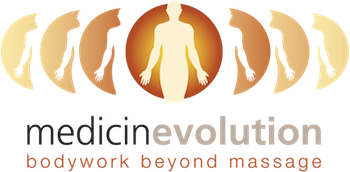Functional movement therapy is a game-changer. By focusing on targeted exercises that mimic natural movements, this approach helps individuals achieve optimal physical function in their everyday lives. Whether it’s bending down to pick up groceries or reaching for something on a high shelf, functional movement therapy equips you with the strength and flexibility to perform these tasks effortlessly. With its emphasis on functional movements, this type of training not only enhances your fitness level but also improves your coordination and balance. Join us as we explore the incredible benefits of functional movement therapy and how it can transform your everyday wellness.
1. Enhancing Joint Mobility and Flexibility
Functional movement therapy is a powerful tool that can greatly enhance joint mobility and flexibility. By incorporating specific exercises and movements, this therapy helps to increase the range of motion in our joints, making everyday movements easier and more fluid.
One of the key benefits of functional movement therapy is its ability to improve flexibility. Through targeted exercises, it helps to stretch and lengthen muscles, allowing for greater freedom of movement. This increased flexibility not only makes daily activities like bending down or reaching overhead easier, but it also reduces the risk of stiffness and immobility.
By focusing on various muscle groups and their corresponding joints, functional movement therapy promotes better overall joint mobility. For example, exercises like squats can help to strengthen the muscles around the knees and hips, improving their range of motion. Similarly, movements that target the shoulders can enhance shoulder mobility.
When our joints are able to move freely through their full range of motion, we experience improved functionality in our daily lives. Whether it’s reaching for something on a high shelf or bending down to tie our shoes, having optimal joint mobility allows us to perform these tasks with ease.
In addition to enhancing joint mobility and flexibility, functional movement therapy also provides numerous other benefits for everyday wellness. These include improved stability and balance, increased strength in specific muscle groups, enhanced posture, reduced pain and discomfort, and better overall body awareness.
2. Reducing the Risk of Injury in Daily Activities
Functional movement therapy offers numerous benefits for everyday wellness, including reducing the risk of injury in daily activities. By focusing on strengthening the muscles used during routine tasks, this type of therapy enhances overall body mechanics and minimizes the chance of injury.
One of the key advantages of functional movement therapy is its ability to improve balance and coordination. Through targeted exercises and practice, individuals can develop better control over their movements, which reduces the risk of falls or accidents during everyday tasks. This is particularly important for older adults who may be more susceptible to injuries from falls.
Functional movement therapy helps individuals become more aware of their body’s limitations and capabilities. By understanding how to move efficiently and safely, they can prevent potential injuries that may result from improper form or technique.
Regular participation in functional movement therapy also addresses specific risk factors associated with certain activities. For example, if someone frequently engages in physical labor or repetitive motions at work, this therapy can help them build strength and endurance to reduce strain on their body.
Furthermore, by incorporating functional movement therapy into a regular exercise routine, individuals can enhance their overall conditioning levels. This not only improves cardiovascular health but also increases stamina for daily activities.
3. Improving Posture and Body Awareness
Functional movement therapy is not only beneficial for reducing the risk of injury but also plays a crucial role in improving posture and body awareness.
By focusing on proper alignment and posture, functional movement therapy helps individuals develop better posture habits. It emphasizes the importance of maintaining good posture throughout the day, whether sitting at a desk or engaging in physical activities.
Having a good posture has numerous advantages. It reduces strain on muscles and joints, preventing discomfort and potential injuries. When the body is properly aligned, it distributes weight evenly across the entire body, avoiding excessive pressure on specific areas such as the back or knees.
Functional movement therapy enhances body awareness. It teaches individuals to be more mindful of their movements and how they affect their overall well-being. By becoming more aware of how they hold themselves and move their bodies, individuals can make conscious adjustments to improve their posture.
For example, if someone tends to slouch while sitting at a desk for long periods, functional movement therapy can help them become aware of this habit and provide strategies to correct it. They may learn exercises that strengthen core muscles or techniques to engage different muscle groups while maintaining an upright position.
Ultimately, by promoting better posture and body awareness, functional movement therapy enables individuals to move with greater ease and efficiency in their daily lives. Whether it’s walking with improved gait or performing a squat with proper form, these small adjustments can have a significant impact on overall wellness.
4. Increasing Core Strength and Stability
Functional movement therapy is an effective way to target and improve core strength and stability. The core muscles play a crucial role in maintaining balance, stability, and proper movement patterns. By incorporating functional exercises into your routine, you can enhance your overall fitness and reduce the risk of injuries.
One of the key benefits of functional movement therapy is its ability to strengthen the core muscles. Through a combination of exercises that engage the abdominal muscles, back muscles, and hips, functional movement therapy helps develop a strong core. This increased core strength provides a solid foundation for all other movements and activities.
Having a strong core is essential for maintaining balance and stability in everyday life. Whether you’re walking, standing, or performing any physical activity, a strong core allows you to move with control and efficiency. It helps distribute forces evenly throughout your body, reducing strain on other joints and muscles.
Furthermore, functional movement therapy improves stability by challenging your body’s ability to maintain proper alignment during movements. By incorporating exercises that require balance and coordination, such as single-leg squats or planks on unstable surfaces, you can train your body to stabilize itself effectively.
By regularly engaging in functional movement therapy sessions that focus on increasing core strength and stability, you can experience numerous benefits for everyday wellness. These include improved posture, reduced back pain, enhanced athletic performance, better overall mobility, and increased energy levels throughout the day.
Incorporating functional movement therapy into your fitness routine can have a significant impact on your overall well-being. By targeting the core muscles through specific exercises designed to increase strength and stability, you can enjoy improved balance and reduced risk of injuries in daily life activities.
5. Boosting Athletic Performance and Efficiency
Functional movement therapy is not only beneficial for improving core strength and stability but also plays a crucial role in boosting athletic performance and efficiency. By optimizing movement patterns, this therapy enhances an athlete’s overall fitness level, leading to improved sports-specific movements and better performance.
One of the key benefits of functional movement therapy for athletes is the increase in power, speed, agility, and endurance. Through targeted exercises and movements, athletes can develop their aerobic capacity and improve their ability to sustain high-intensity activities for longer periods. This increased endurance allows them to perform at their best during competitions or intense training sessions.
Functional movement therapy incorporates plyometric exercises that focus on explosive movements. These exercises help athletes generate more force and power during activities such as jumping or sprinting. By training the muscles to produce quick bursts of energy, athletes can enhance their performance in sports that require rapid movements.
Moreover, functional movement therapy promotes weight loss by increasing metabolism and building lean muscle mass. As athletes engage in these exercises regularly, they burn calories more efficiently and effectively shed excess body fat. The combination of improved metabolic rate and increased muscle mass contributes to a leaner physique while maintaining strength.
Furthermore, functional movement therapy improves blood flow throughout the body, delivering oxygen-rich blood to the muscles. This enhanced circulation aids in faster recovery from workouts or injuries while reducing muscle soreness. Athletes can benefit from quicker recovery times between training sessions or competitions, allowing them to maintain consistency in their performance.

6. Alleviating Chronic Pain and Discomfort
Functional movement therapy offers numerous benefits for everyday wellness, and one of the most significant advantages is its ability to alleviate chronic pain and discomfort. By addressing underlying movement dysfunctions, this therapy helps individuals find relief from persistent pain that may have been plaguing them for years.
Muscle imbalances are a common cause of chronic pain, especially in areas such as the back and joints. Functional movement therapy focuses on reducing these imbalances through targeted exercises that restore proper alignment and function. By strengthening weak muscles and releasing tension in tight ones, it promotes pain-free movement patterns and improves overall musculoskeletal health.
For those suffering from conditions like arthritis or other health conditions that cause chronic pain, functional movement therapy can be particularly beneficial. It not only helps manage pain but also improves joint mobility and stability. With regular practice, individuals may experience a reduction in their reliance on medication for pain management.
Engaging in functional movement therapy can stimulate the release of endorphins, which are natural pain-relieving chemicals produced by the body. These endorphins help reduce discomfort and promote a sense of well-being.
Furthermore, functional movement therapy has been shown to have positive effects on blood pressure levels. Regular exercise improves cardiovascular health, leading to lower blood pressure readings over time.
7. Promoting Recovery from Injuries and Surgeries
Functional movement therapy plays a crucial role in promoting recovery from injuries and surgeries. Whether you’ve had a sports-related injury or undergone surgery, this therapy can help you regain strength, mobility, and functionality.
One of the key aspects of functional movement therapy is its focus on restoring specific movements that are essential for everyday tasks. Unlike traditional rehabilitation methods that may only target general movements, functional movement therapy tailors exercises to your individual needs. By doing so, it ensures that you regain the ability to perform activities that are important to you.
Recovering from an injury or surgery can be a gradual process. Functional movement therapy acknowledges this by gradually reintroducing movements and exercises based on your progress. This approach allows your body to adapt and build strength over time without overwhelming it.
For example, if you have had knee surgery, your physical therapist may start with gentle exercises to improve range of motion and stability. As you progress, they will gradually increase the intensity and complexity of the exercises to challenge your muscles further.
Functional movement therapy is not limited to physical injuries alone; it can also aid in the recovery process after a stroke. Stroke survivors often experience difficulties with mobility and coordination. Through targeted exercises aimed at improving balance, coordination, and muscle control, functional movement therapy helps individuals regain independence in their daily lives.
8. Contributing to Mental Well-being and Stress Reduction
Releases Endorphins for a Positive Mood
Functional movement therapy has been found to release endorphins in the body, which are natural chemicals that promote feelings of happiness and well-being. When you engage in functional movements, such as squatting, lunging, or lifting weights, these activities trigger the release of endorphins, leading to an improved mood and overall mental state. This can be especially beneficial for individuals who may be experiencing stress, anxiety, or depression.
Reduces Stress Levels through Physical Activity
One of the key benefits of functional movement therapy is its ability to reduce stress levels. Engaging in physical activity through functional movements provides an outlet for pent-up energy and tension. By incorporating regular sessions of functional movement therapy into your routine, you can effectively manage stress and experience a greater sense of calm and relaxation.
Improves Overall Mental Well-being
In addition to promoting a positive mood and reducing stress levels, functional movement therapy also contributes to overall mental well-being. Regular participation in functional movements has been shown to enhance cognitive function, improve sleep quality, and boost brain health. These improvements can have a profound impact on various aspects of life including work productivity, studies or playing sports.
Research studies have also demonstrated that seniors who engage in functional movement therapy experience enhanced cognitive function and better overall health outcomes compared to those who do not participate in such activities. By prioritizing functional movement therapy as part of your wellness routine, you can support your mind-body connection and enjoy the numerous mental health benefits it offers.
9. Tailoring Workouts to Individual Needs and Goals
Highly Customizable Exercise Programs
Functional movement therapy is a versatile approach that prioritizes tailoring workouts to individual needs and goals. Unlike generic exercise programs, functional movement therapy takes into account personal limitations and adapts exercises accordingly. This ensures that each workout is specifically designed to address the unique requirements of the individual.
Addressing Specific Objectives
Whether you are aiming for weight loss, muscle gain, or rehabilitation, functional movement therapy can be customized to help you achieve your specific objectives. A personal trainer specializing in this form of therapy will work closely with you to understand your goals and create an exercise program that aligns with them.
Adapting Exercises for Limitations
One of the key benefits of functional movement therapy is its ability to adapt exercises for individuals with physical limitations or injuries. By focusing on movements that mimic everyday activities, such as bending, lifting, and reaching, the therapy helps improve strength and flexibility while minimizing strain on affected areas.
Enhancing Overall Fitness
Functional movement therapy goes beyond isolated muscle training commonly found in traditional gym workouts. It emphasizes full-body movements that engage multiple muscle groups simultaneously. This holistic approach not only improves overall fitness but also enhances coordination, balance, and stability.
Preventing Future Injuries
By strengthening the body’s natural movement patterns through functional movement therapy, individuals can reduce their risk of future injuries. The therapy focuses on correcting imbalances and improving mobility, which helps prevent compensatory movements that often lead to overuse injuries.
Incorporating functional movements into your exercise routine can yield numerous benefits tailored to your needs and goals.
10. Integrating Functional Movement Into Your Lifestyle
Incorporating functional movement therapy into your daily routine can have a profound impact on your overall well-being. By enhancing joint mobility, reducing the risk of injury, improving posture, and increasing core strength, you can experience improved athletic performance, greater mental well-being, and enhanced everyday functionality. Functional movement therapy is not just for athletes or those recovering from injuries; it is a valuable tool for anyone looking to optimize their physical health.
So why wait? Take the first step towards a healthier lifestyle by integrating functional movement into your daily routine. Whether it’s incorporating simple exercises into your morning routine or seeking out professional guidance, every small step counts. Embrace the power of functional movement and unlock your body’s full potential. Your future self will thank you!

Embracing Functional Movement Therapy for Injury Recovery: Your Journey to Enhanced Mobility with MedicinEvolution!
Are you facing challenges in your athletic endeavors due to a sports injury, battling discomfort, and restricted movement? Look no further than MedicinEvolution for a solution. Here, the principles of Functional Movement Therapy are meticulously employed to address your sports-related injuries, paving the way for a more effective and holistic recovery. Say farewell to the limitations brought on by muscle imbalances, overuse, and repetitive sports actions—as MedicinEvolution delves deep into the underlying causes of your injury, fostering a profound healing journey. Their adept techniques promise a significant shift away from the pain and mobility issues that have been impacting your sports performance.
If you’re dealing with ongoing discomfort, stiffness, or the exasperating constraints of a sports injury, their tailored Functional Movement Therapy is crafted to cater to the unique demands of your situation. Don’t allow setbacks from injuries to dictate your sports narrative—seize control and book your appointment with MedicinEvolution now! Step into the world of Functional Movement Therapy and commence a journey toward a more dynamic, pain-free lifestyle. Your body, along with your sporting goals, will thank you!





